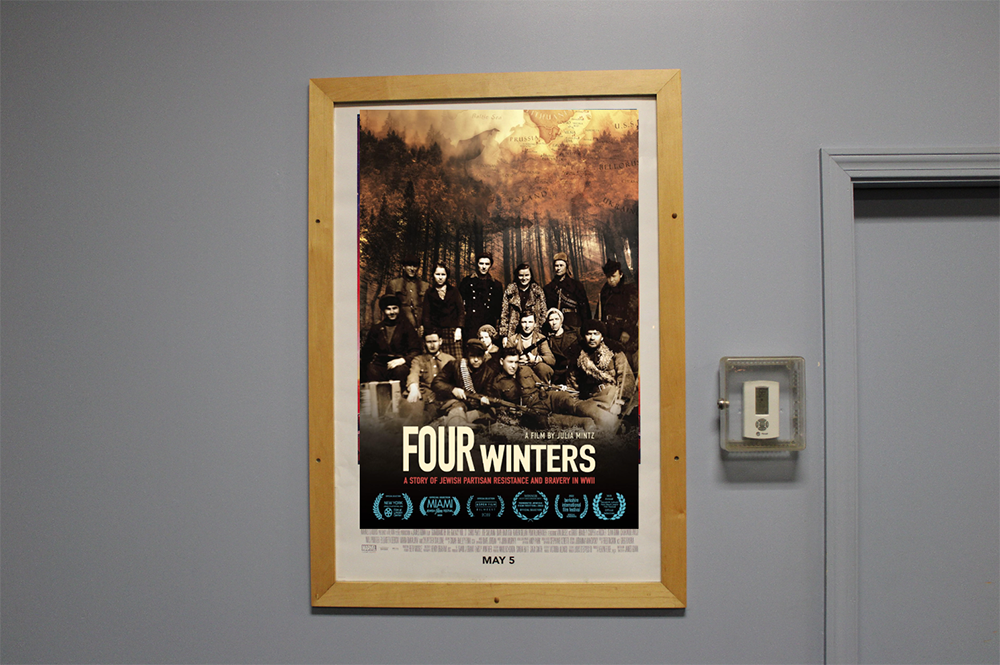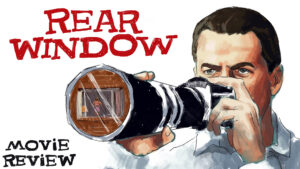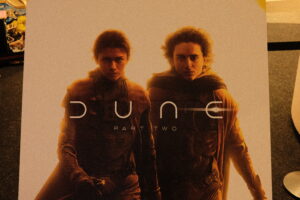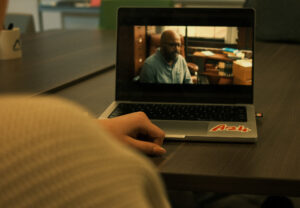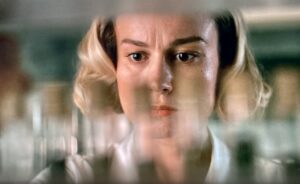The documentary film “Four Winters: A Story of Jewish Resistance during World War II” was streamed in the Donald P. Corbett building on Thursday, April 20th it was sponsored by the University of Maine’s Judaic studies program as part of the Maine Jewish Film Festival. A panel was held afterwards to discuss further about the content in the film.
The Maine Jewish Film Festival partnered with Derek A. Michaud, lecturer of philosophy and coordinator of religious and Judaic studies at UMaine, as a means to bring films to an academically focused environment within the Bangor area. The film itself was picked to coincide with Holocaust Remembrance Day, which takes place from the evening of April 17 to the evening of April 18.
“Four Winters” follows the perspectives of Jewish survivors who tell their stories of heroism and resilience. To avoid Nazi control, the young adults fled into the forests of Eastern Europe between the years of 1941 and 1945. Other survivors who met up with each other would eventually come together as partisans to sabotage Nazi support over the course of World War II.
What makes the film powerful is not only the accounts of each individual survivor, but also how it puts a twist on traditional preconceived prejudices. “Four Winters” does not shy away from the horrors of Jewish treatment during the Holocaust. However, the film also aims to present real accounts of Jewish people being depicted as strong and unflinching resistance fighters, showcasing footage and photos of train sabotage as well as developing medicine to help the injured.
The power of the individual stories helps elevate the film and its believability. The partisans and survivors talk about actions or events they were involved with even if they aren’t always happy or proud of them. Because these situations were forced upon them, it provides a unique perspective on one of history’s most tragic time periods.
“To see the individual tell that story directly for themselves face to face has a raw kind of power that I haven’t seen in other documentaries,” Michaud said.
Erica Nadelhaft, education coordinator at the Holocaust and Human Rights Center at UMaine and Anne Kelly Knowles, history professor at UMaine, were brought on board to discuss topics from the film as well as the film’s current cultural significance. Nadelhaft specializes in studying Jewish resistance during the Holocaust and saw the documentary’s portrayal of the time period to be extremely important to recognize.
“The story of the partisans is one that is only being recently told. For so long we focused on armed resistance, and before that there was a question of ‘was there resistance,’” Nadelhaft said, “There [are] so many other types of resistance that I’m very glad to see this film telling part of the story, that I think has been missed for so long.”
Nadelhaft goes into detail about the other important forms of Jewish resistance that took place around the time period, such as cultural, education and spiritual resistance as a means to survive until they were able to fight in arms. The young resistance was able to create schools as well as underground passages as a means to not only move forward into armed resistance, but also to anticipate the horrible treatment of Nazi control.
The film also does an incredible job of editing between the accounts of Jewish partisans alongside older footage to visually convey the story. Professor Knowles praises the film for its ability to recreate the places where each event has happened through its editing, and believes the film will have a profound effect on Holocaust documentation going forward.
Another important aspect of the film is in showcasing anti-semitism. The rise of Nazi Germany control allowed older prejudice’s to run rampant in Eastern European countries, as individuals who previously held anti-semitic beliefs were given power to berate and discriminate against Jewish people without repercussion.
Modern examples of anti-semitism can be seen today in Europe and the United States, whether they be more covert or blatant. Asian individuals, as well as Jewish and Israeli people, were berated during the COVID-19 pandemic with the stigmatized idea that they were at fault for the pandemic. The film’s portrayal of anti-semitic behavior should be observed as a means to recognize the link towards more modern examples.
“Four Winters” is a film that showcases the stories of Jewish partisans and their resistance towards hatred and discrimination. Their story is important to preserve as a means to further educate people about one of the most bleak points of the 20th century.
